#signor ferarri
Explore tagged Tumblr posts
Photo
"You know Louie you're invisible without that mustache. This entire time, I thought 'I've seen that man somewhere before,' but couldn't place it until I saw you move that eyebrow again."
"That's funny Ugarte. I recognized you instantly, even under that elaborate disguise."
"Disguise? Hhh. This isn't a disguise! I've just uh, settled into a less conservative style of fashion."
"I was referring to that extra layer of cellulite you're wrapped in. Did you steal that from Signor Ferrari before he passed?"
"Oh, this. Heh. He uh, left it to me in his will. But uh, only a percentage. The rest went to your ass."
"Touche."




#rope of sand#casablanca#casablanca continued#ugarte lives#claude rains#peter lorre#ugarte#louis renault#sequel#gif#cigarette#light#bromance#friendship#fat#chonky#signor ferarri#1949
52 notes
·
View notes
Text
Casablanca: The Story
Whether you enjoy a timeless love story, heart-wrenching interpersonal drama, gritty film-noir, thrilling spy action, edge-of-your-seat suspense, or war stories, Casablanca has it all, and in spades. Everything from classic lines to familiar story beats comes together to tell this story of a tragic romance embroiled in the midst of an oncoming war, and what a ride it is. Let’s take a look.
So what’s the setup?
It’s December of 1941, and War is coming. The Nazis have already taken most of Europe, and are looking to march on what’s left, with no signs of stopping. The refugees, fleeing the Nazi forces, search for transportation to America, and most end up in the city of Casablanca.
The problem is, then they can’t get out of Casablanca. As a result, the city becomes somewhat of a way station, full of people waiting for visas to enable them to cross the Atlantic, and the officials profiting from the people’s desperation. As it turns out, a few German officials, carrying important documents, have just been murdered, and their documents stolen. Casablanca is on the alert, and the German forces in the city are taking it quite seriously, rounding up suspects and marching them into custody.
In short, Casablanca is not an easy place to live.
A plane full of Nazi officials arrives in the city, bringing with it Major Strasser, who is introduced to Casablanca’s Police Prefect, Captain Louis Renault. (Claude Rains)
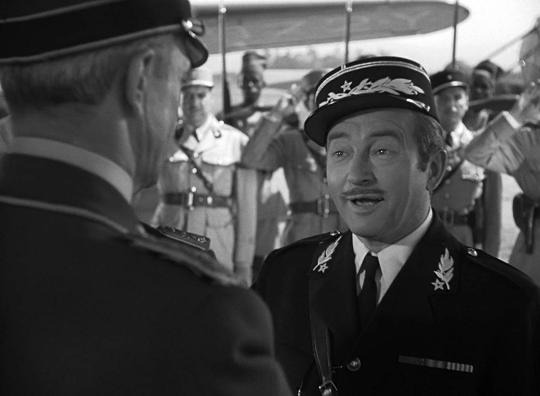
Renault assures Strasser that they are doing everything in their power to solve the murder case, and explains that he knows who the murderer is, and expects to arrest him tonight. You see, Renault believes that the killer will be at Rick’s.
How does he know this, you may ask? Simple. Everyone comes to Rick’s.

Thus we are introduced to the hub of activity both in the city, and in the film, Rick’s Café Americain, a popular nightclub and gambling den. It’s a busy place, full of people who want to leave the country and their hushed conversations, all set against the soothing background noise of piano player Sam.
It is here that we are introduced to the owner of Rick’s Café Americain, Rick Blaine (Humphrey Bogart).
Right off, we learn a few things about him: He never drinks with customers, and he’s got a dry wit that’s sharper than a brand-new razor.

Rick sits, playing chess by himself (an element inspired by Bogart) at his own private table when he is interrupted by a man named Ugarte (Peter Lorre).
Ugarte tells Rick that his specialty is helping refugees (for a price), and that he himself intends to clear out of Casablanca that very night. He gives Rick something for safekeeping: an envelope that contains valuable letters of transit. An interesting choice, since it’s rather obvious that Rick doesn’t exactly like him very much, but Ugarte seems to trust him quite a bit, even if there isn’t any friendship between them.
“You know, Rick, I have many a friend in Casablanca, but somehow, just because you despise me, you are the only one I trust.”

Interestingly enough, as Rick points out, letters of transit are what was stolen from the murdered German couriers. He tells Ugarte that he’s ‘a little more impressed’ with him, and leaves it at that, hiding the papers inside the piano. A few moments later, he is approached by Signor Ferarri, the ‘head of all illegal activities in Casablanca’ and the owner of another nearby club, The Blue Parrot, who wants to buy Rick’s, or at the very least the piano player, Sam.
Rick’s having none of it, and tells Ferarri that he’s not selling the club, nor does he sell human beings, period. After this discussion and a brief incident ending with Rick calling a cab for a lady patron, the stoic club owner ends up in a conversation with none other than Captain Renault, who, ironically, seems to be on almost friendly terms with him.
The pair exchange witty banter, with Renault guessing reasons Rick has not returned to his home country, America. Rather than provide the true reason, Rick is content to let his Friendly Enemy guess, remaining very closed-mouthed on the reasons he remains in Casablanca.
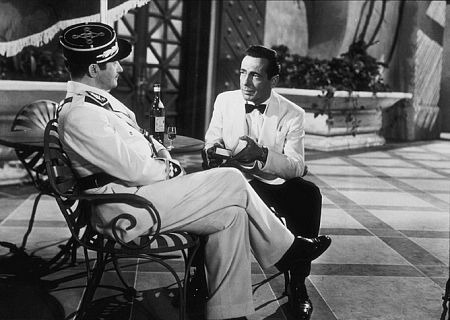
Eventually, Renault gets to the point of his visit: He intends to make an arrest in Rick’s club tonight, and that Major Strasser of the Third Reich will be there to watch. Renault also mentions that there is a certain individual who has just come to Casablanca who will likely be in search for an exit visa much like the ones that were recently stolen. This individual’s name is Victor Lazlo, and the German army is quite keen on catching him before he gets overseas, and of course, Rick can’t, and won’t do anything about it, right?
After all, Rick sticks his neck out for no one.
Rick and Renault decide to make a bet on the outcome of Victor Lazlo’s stay in Casablanca. Renault wagers that he shall be captured, Rick that he shall escape. There’s a catch though, as Renault explains to Rick; Lazlo will probably be looking for two exit visas, as he’s traveling with a woman that he’s quite fond of.
Moments later, Major Strausser arrives, and Renault commences the arrest operation. His men move in on the suspect: Ugarte, the man who entrusted the important papers to Rick earlier. Ugarte, makes a pretense of going quietly before making a run for the door, firing a few shots behind him. He spots Rick on his way, pleading with him to help him hide, but it’s no good: he’s caught and dragged away, to the satisfaction of both Renault and Strasser.

Strasser isn’t completely satisfied, however. He wants to ask Rick a few questions.
He asks, all right, but doesn’t get much by way of answers. Rick’s just as tight-lipped with Strasser as he was with Renault, and the only information anyone comes away with is that Rick is from New York, and has brown eyes (apparently).
“Richard Blaine, American. Age, 37. Cannot return to his country. The reason is a little vague.”
Strasser is concerned that Rick might help Victor Lazlo, the man previously mentioned by Renault. Apparently Lazlo has been getting the word out on some of the nasty things that the Third Reich is responsible for, and as a result, the German military really want him arrested.
Why bring this to Rick? After all, he sticks his neck out for no one.
As it turns out, Rick has a history with lost causes. And speaking of history, it’s about to come back and bite him. Hard.
You see, Victor Lazlo (Paul Henreid) has just walked into Rick’s Cafe, with a woman on his arm. This woman is named Ilsa (Ingrid Bergman), and Sam (Dooley Wilson), the pianist, recognizes her immediately.
Victor and Ilsa get a table, and are apparently going to meet with someone to help them, when they are interrupted by none other than Captain Renault, who cordially sits down to share a drink with them rather than arrest them. How nice.
Ilsa, for her part, is returning Sam’s recognition, and asks Renault about him. The captain informs her that Sam came from Paris, traveling with the owner of the establishment, Rick. Ilsa seems interested in this ‘Rick’ character, but before she can really start asking questions, Strasser sits down at the table as well, clearly hostile towards Victor, but unwilling to do anything just yet, with Victor on French soil. Strasser arranges to meet with Victor the following day in Renault’s office to discuss why Victor’s here, and with that, leaves him to his drink.

No sooner are Victor and Ilsa alone than Victor immediately heads to the bar to inquire about his contact. You see, he and Ilsa were supposed to meet with someone who would provide him with the letters of transit to get out of Casablanca. They were, in fact, to meet with the recently-arrested Ugarte.
Left alone at their table, Ilsa begins a conversation with Sam, the piano player, and it’s obvious they know each other. Ilsa has a song request: she wants Sam to play ‘As Time Goes By’. Sam, while reluctant to at first, eventually gives in and begins playing the tune just in time for Rick to barge in, shouting at Sam for playing that song. Before he can really lay into him, Rick and Ilsa spot one another, and Rick recognizes her, instantly.

Sam grabs the piano bench and gets the heck out of Dodge.
Renault and Victor arrive at Ilsa’s table again, meaning that whatever history is between the pair will have to be ignored for now. Rick, breaking his own rule, joins them for a drink, to Renault’s surprise.
After an evening of small talk, Victor and Ilsa leave in a cab and Rick heads to a private room in his club to recover.
Later that night, Rick is sitting by himself in his club, drinking and remembering old times, and not in a fond way.
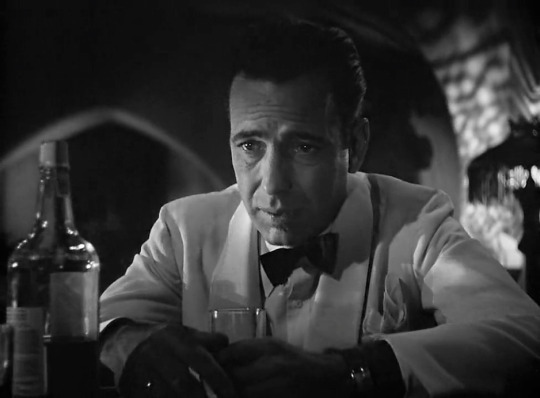
“Of all the gin joints in all the towns in all the world, she walks into mine.”
As he sits, hoping Ilsa comes back, Sam comes in, trying to get him to leave. Rick isn’t budging, instead making a song request, the same song that Ilsa requested earlier.
“Play it, Sam. Play ‘As Time Goes By.'”
And so Sam does, albeit reluctantly. As he plays, Rick continues remembering, an entire relationships worth of remembering of he and Ilsa in Paris. Apparently the two were an item, and Rick was a considerably happier looking guy. During this time, the pair knew very little about each other, except that there had been another man in Ilsa’s life who was now dead.

Despite this, the two seem quite happy together, until something interrupts it. The War.
The German army is moving in on Paris.
The night before the Gestapo are to invade, Sam plays ‘As Time Goes By’ on the piano as Rick and Ilsa plan to escape Paris the following morning together by train.
The next morning, Rick stands at the train station, alone, waiting for Ilsa, who never shows. Sam approaches with a note from Ilsa, a note which explains that, while she loves Rick, she can’t go with him, and she can never see him again. Rick is left on the train station with a broken heart and a new cynical edge as Sam pulls him onto the train that will eventually take him to Casablanca.
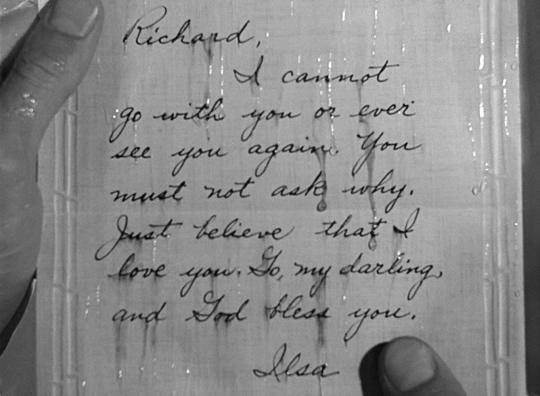
In the present, Rick looks up to see Ilsa in the doorway. By this time, he is good and drunk, and isn’t really interested in hearing her explanation of what happened in Paris. Eventually, his snark and hard edge, reinforced by the alcohol, drive her off before she has a chance to tell him her side of the story.
So, before we get any further, let’s take a look at where we’re at.
Right now, we’ve got a handful of major players that we’re getting to know pretty well, all wrapped up in the affairs of Casablanca. First, there’s Rick.
Rick is a cynic, a bitter man who’s been kicked around by life a bit too much. While having a history of fighting for the underdog and being a romantic, something happened to him along the way that changed his way of thinking to: “I stick my neck out for no one.”

That event was, of course, Ilsa’s leaving, and the heartbreak that ensued.
As a result, Rick is a changed man, a hard man who now claims that he never gets involved, and who certainly wants no part of his sentimental roots. He’s really an interesting choice as a protagonist, as the audience does like him and root for him, but he’s not the heroic type. No, that’d seem to be Victor Lazlo, wouldn’t it?

Victor is the opposite of Rick in just about every way. He’s a good, honest and upright man, idealistic, brave, and patriotic to a fault, and wanted by the Nazis (which is a recommendation in and of itself). In any other movie, he’d seem to be the obvious choice for the hero of the story. Not in Casablanca.
Between the two is Ilsa. She’s with Victor, and was in love with Rick, and is the one person Rick ever truly loved. She is currently stuck in the middle, the balancing act between the idealism and the cynicism, and the bridge between the characters. She’s a strong woman who’s been through a lot of pain that she keeps under wraps, and it shows in her interactions with both Rick and Victor.

Three different characters, all stuck in Casablanca for their own very good reasons, and of course, all end up in each other’s lives, under the pressure of the Gestapo. This leaves very little room for coincidence, and serves as an excellent setup for the situation and the characters involved. Even more showcased are the contrasting characters, all falling on different sides of a moral chart ranging from the upright Victor to the neutral Rick, to the corrupt Renault, to the evil Strasser.
Speaking of which, let’s get back to the story.
Victor and Ilsa arrive in Captain Renault’s office the next morning for their appointment, just moments after Strasser informs Renault that he believes that Ugarte left those important letters of transit with Rick. Strasser, upon seeing the couple, informs Victor that there is exactly one way he can get out of Casablanca: if Victor gives up the names and locations of the leaders of the underground movement rising against the Third Reich.

Victor, being the stone-cold patriot that he is, doesn’t talk, and he and Ilsa leave Renault’s office, but not before being told that Ugarte is dead.
Meanwhile, Rick decides to pay Signor Ferarri a visit at Ferarri’s club, The Blue Parrot, to pick up a shipment that’s due. Ferarri tells Rick that he’ll send the shipment to him when it comes in, and knowingly remarks that he’d pay a lot of money for the missing letters of transit. Rick lets on that he definitely knows something, but leaves it at that, and goes on his way, meeting Ilsa in the market on his way out.
Now in a sober state of mind, Rick tries to persuade Ilsa to explain to him what happened in Paris, but Ilsa refuses, preferring to think of older, happier times than the recent barbed encounter. She does however, impart a very large bombshell:
Victor Lazlo is her husband. Not only that, he has been her husband, and she was married to him during her romance with Rick in Paris.
She leaves him with that information and leaves, with her husband, for the place Rick just left: The Blue Parrot.
Once inside, the two attempt to bargain with Ferarri to get them out of Casablanca. Ferarri explains that he can’t get Victor out, but he might be able to arrange for a way to get Ilsa out. Ilsa, unwilling to leave her husband, turns him down. Rejected but not bitter, Ferarri tells the couple that the missing letters of transit were not with Ugarte during his arrest, and that they are probably with Rick.

It doesn’t exactly seem to be a secret.
Back at Rick’s Café Americain, Renault still hasn’t found the transit papers, even after searching Rick’s place. The Captain has a conversation with Strasser, who is worried about the level of influence Victor Lazlo might have on the people.
“It is too dangerous if we let him go. It may be too dangerous if we let him stay.”
Just then, Victor approaches Rick and says that he wants to talk to him, in private. Rick agrees, and they move to his office, where Victor tries to convince Rick to give him the letters of transit. Rick refuses, flat-out stating he won’t let them have them at any price. When Victor asks why, Rick tells him to ask his wife.
Confused, Victor heads back to the main room, where a bunch of German officers are exuberant playing and singing a patriotic German song. Victor springs into action, getting the club’s band to play the “Marseillaise” over them. Around the room, the refugees in Rick’s Café Americain stand, singing the French National Anthem as loudly as they can. It’s a powerful moment, but unfortunately, it catches Strasser’s attention.
Now certain that Victor’s presence is a disturbance, inspiring the populace against the Third Reich, Strasser orders Renault to close down Rick’s, and get everyone out. As the place is clearing, Strasser tells Ilsa that she and her husband are in danger, and will be until they allow Strasser to take them back to German-occupied France.

Back in Victor and Ilsa’s hotel room, Victor confronts Ilsa, telling her about Rick’s response to his attempt to get the letters. Ilsa doesn’t really tell him anything, but he pieces it together anyway, and forgives her for drifting away while he was in a concentration camp, before leaving to attend an underground resistance meeting.
Meanwhile, Rick heads home to his apartment above his club, and realizes he’s not alone. Ilsa snuck in the back, and has been waiting for him. She pleads with him to get over his bitterness towards her, and think about the bigger picture. Rick, however, doesn’t really want to.
Ilsa isn’t willing to let it go at that, and pulls a gun on him. Rick calls her bluff, knowing she won’t actually shoot him, and Ilsa tells him that he has no idea what she’s been through, and that she did love him, and still does. After a brief reconciliation, Ilsa begins to explain what happened in Paris.
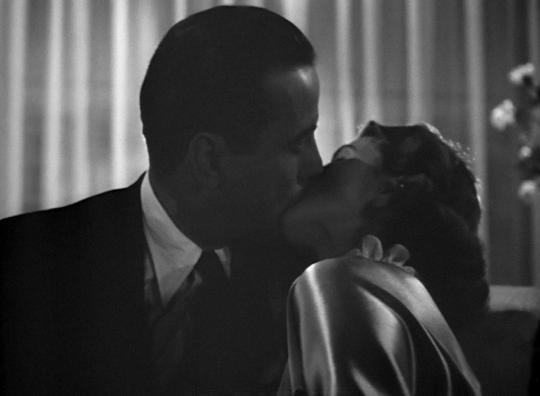
Before she met Rick, Ilsa had been married to Victor, who, she was told, had been shot and killed. She wasn’t lying when she said the other man in her life was dead, she’d legitimately thought that, and that’s why she let herself fall in love with Rick. As it turns out, Victor wasn’t dead (obviously) but in a concentration camp. The day he escaped was the day Ilsa was to meet Rick on the train station platform to escape Paris. Ilsa, finding this out, stayed with her husband, and sent the note to Rick, explaining that they couldn’t be together.
Ilsa in the present says that she can’t bring herself to leave Rick again, but pleads with him to at least get Victor out of Casablanca, telling him to do the thinking for all of them.
As it happens, Victor enters the club downstairs, led by one of Rick’s employees who was at the same underground resistance meeting with him. Rick calls his employee upstairs, has him sneak Ilsa back home out the back, while he goes downstairs to talk to Victor.
No sooner does Rick join Victor at the bar that Victor begins to try to get the letters of transit from Rick again, this time saying that, if he won’t give Victor one, at least give Ilsa one so she can get out. Rick seems impressed by this show of love, but before he can give a definitive answer, a group of French officers barge in and arrest Victor.
The next morning, Rick enters Captain Renault’s office, and tells him that he and Ilsa are running away to America, and that the last person they would want to run into would be Victor. Rick explains that, instead of holding Victor on a flimsy, fictional charge, it would be a better idea of Renault released Victor, and catch him in the act of trying to get the letters of transit off of Rick. This way, Renault can put Victor away as accessory to the murder of the German couriers, for good. Renault, liking the sound of this, agrees. After this, Rick drops by The Blue Parrot to sell Rick’s Café Americain to Signor Ferarri, on the condition that all of his employees keep their jobs.

That night, at Rick’s club, Renault shows up to help with the plan to get Victor arrested, and hides as Ilsa rushes in, worriedly telling Rick that Victor thinks that Ilsa’s going with him, not Rick. Rick assures her that everything’s going to be fine, and Victor enters. Rick hands over the letters of transit, and Renault springs from hiding, arresting Victor.
A lot happens at once.
Ilsa rushes to Victor, and all of a sudden, Rick has a gun out and trained on Renault. He orders Renault to sit down (hands where he can see them) and call the airport to tell them that two people are leaving for Casablanca for Lisbon, and to not give them any trouble.
Renault pulls a fast one on Rick’s fast one, though, and calls Strasser instead, unbeknownst to Rick.
Strasser, being unfortunately intelligent, figures out what’s going on and orders a police squad to meet him at the airport, and heads out to stop them before they can get out.
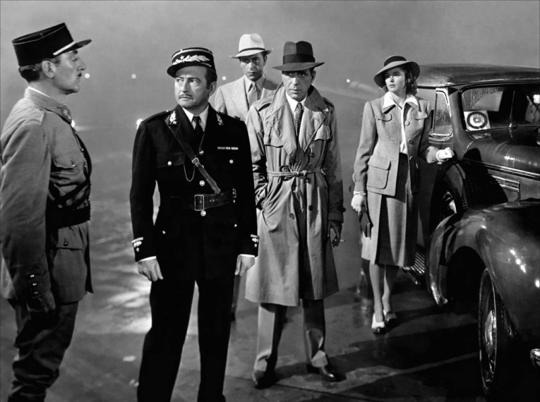
Rick, Renault, Ilsa and Victor arrive at the airport, and Rick tells one of the orderlies to put Victor and Ilsa’s baggage on the plane. Ilsa, realizing that Rick is planning to stay behind, is heartbroken, reluctant to leave him again.
“You’re saying this only to make me go.”
“I’m saying it because it’s true. Inside of us, we both know you belong with Victor. You’re part of his work, the thing that keeps him going. If that plane leaves the ground and you’re not with him, you’ll regret it. Maybe not today. Maybe not tomorrow, but soon and for the rest of your life.”
“But what about us?”
“We’ll always have Paris. We didn’t have, we, we lost it until you came to Casablanca. We got it back last night.”
“When I said I would never leave you.
“And you never will. But I’ve got a job to do, too. Where I’m going, you can’t follow. What I’ve got to do, you can’t be any part of. Ilsa, I’m no good at being noble, but it doesn’t take much to see that the problems of three little people don’t amount to a hill of beans in this crazy world. Someday you’ll understand that.”
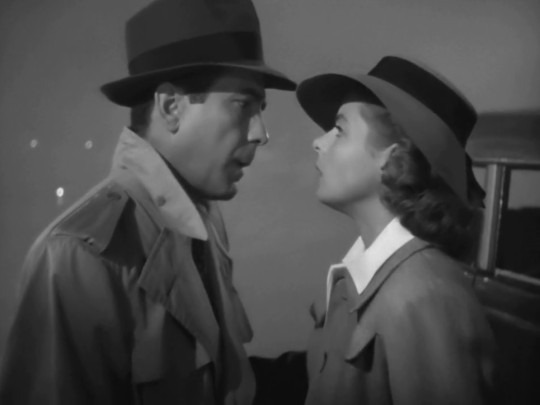
Rick finally puts the big picture ahead of his own little one, and does the right thing. Knowing Ilsa belongs with Victor, he lets her go, and rushes them both onto the plane, which starts down the runway at the exact second Strasser pulls in.
Strasser tries to put in a call to the radio tower to stop that plane, but is abruptly interrupted by Rick shooting him in the chest. Strasser falls, dead, as all of the cops show up.
It looks like it’s curtains for our hero. Renault tells the officers that Strasser has been shot, and after a tense moment, the corrupt Captain decides not to turn Rick in.
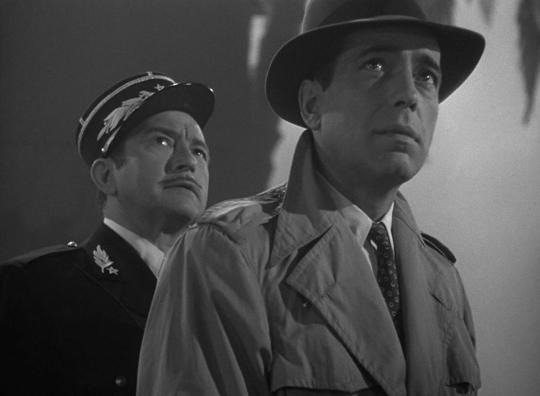
“Major Strasser has been shot…..Round up the usual suspects.”
The plane takes off, and Renault advises Rick to leave Casablanca for a while. He also suggests that perhaps they could leave together and do some good. The pair walk off into the fog, as Rick drops the final, iconic line:
“Louie, I think this is the beginning of a beautiful friendship.”
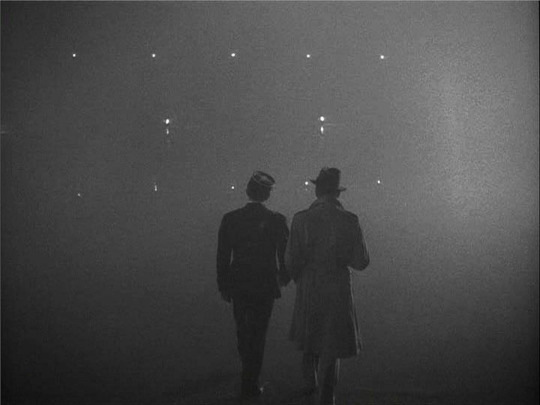
Thus ends one of the most beloved films of all time.
At first, the end of this movie can seem a little abrupt. After spending so much time building up the story, it almost seems like the ending comes rushing in, changing everything in the last twenty minutes. Rick’s last-minute gambit can seem almost as though all of his development was done in the last third of the film. It’s clear that he’s a changed man, alright, but it can seem kind of rushed, if you don’t look carefully at the entire film.
You see, throughout the movie, Rick regularly declares: ‘I stick my neck out for no one,’ but the fact is, that isn’t really true.
While Rick presents a bitter and cold demeanor, the fact is, throughout the entire film, he does little else than stick his neck out for other people. If all he cared about was his own security and success, he’s doing a terrible job at it.
From refusing to sell his club to rigging the roulette tables for a refugee couple, Rick’s tendency to fight for the underdog never really dies down. His most selfish actions are as a direct result of a broken heart, a bitter edge grown after the only woman he’s ever loved left him without explanation.
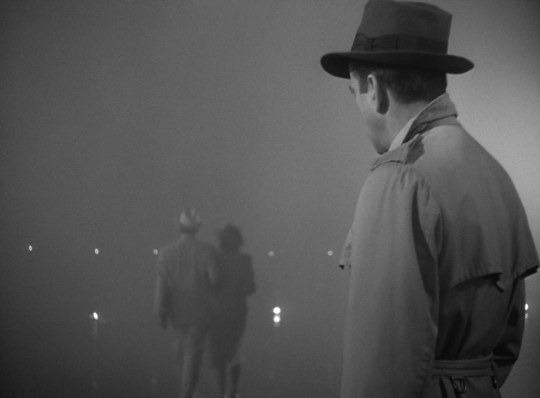
Rick is obviously a changed man by the end, but it has less to do with his morals, and more to do with his duty.
You see, Rick serves as both a character and a picture of America. With a story set during December of 1941, a ‘neutral’ American character who must decide whether or not to take a stand in the war. It’s no coincidence that his ending comes about when he lets go of his own selfish desires and looks at the big picture, and puts the world first, over what would make him happiest. For Rick to grow into a better person, he has to let Ilsa go.
He’s not the only one sacrificing, though.
Throughout the film, the number of sacrifices characters are willing to make are staggering, and it’s quickly obvious that the ones who are willing are heroic, the ones who aren’t are villains. Strasser is very concerned about the risks of having Victor around, but plays it safe. Renault, originally content to do anything to save his own skin, eventually sacrifices his safety in Casablanca for the greater good.
The character who is willing to sacrifice the most is, of course, the most heroic character. Victor Lazlo, having escaped a concentration camp and been pursued by the Third Reich, is willing to give up his wife and his freedom, safety, and life to make sure that Ilsa is safe. He is unaware of Ilsa’s past, and doesn’t feel the need to be. His love and his duty mix together, his goals blend, and therefore, as the most heroic character, the character that might traditionally be the protagonist, he is also the least conflicted character. As a matter of fact, the honor of most conflicted character goes to his wife.
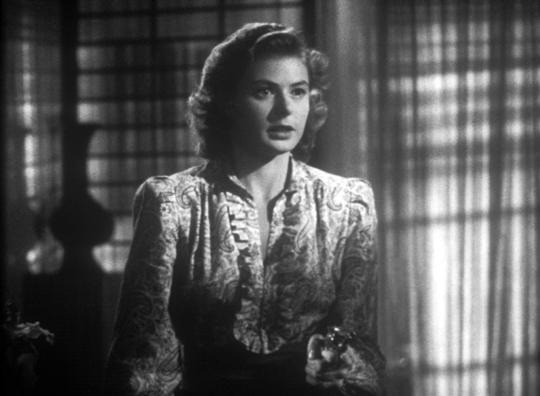
Ilsa’s sacrifice is on both sides. Torn between her husband and the man she fell in love with years prior, Ilsa has little choice in who she boards that plane with, and is uncertain of which man is going with her until the very end. She is willing to sacrifice her life of freedom with her husband to stay with Rick, initially choosing gratification over duty, but in the end, comes to the same conclusion that Rick does: The right thing for her to do is to go with her husband, to freedom.
It’s a bittersweet ending, but it’s also one that ties up all the loose ends, and the only possible satisfactory ending for the characters. The audience feels the same pull as the characters, the same division between duty and desire, but we know, as does Rick, that in the end, he has to look at the big picture. That’s the genius of Casablanca. It asks the audience to consider the same moral questions it asks of its characters:
Are you willing to sacrifice for the greater good?
Rick, like America, is waking up and realizing that he has to do something to fight injustice, and that to do that, he has to be willing to give up his personal happiness, to allow himself to be an idealist, and to keep fighting for lost causes.
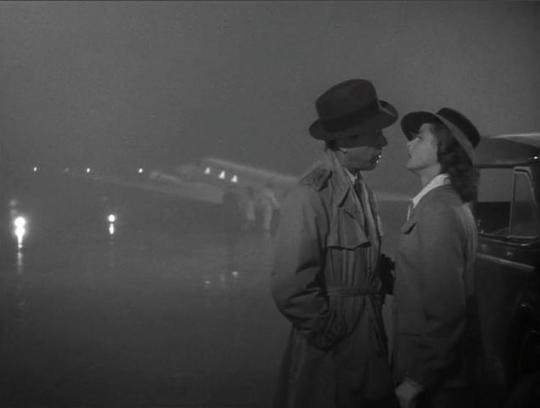
The ending is heartbreaking, yes. But unlike heartbreaking endings where we rage against the disservice done the characters, this bittersweet ending is the only possible ending for all of the characters to maintain their integrity, the only way they can all do the right thing.
And we applaud them for it. It’s a perfect ending to what’s pretty darn close to a perfect story. But of course, there’s more to a movie than a story.
In the articles ahead, we’re going to be taking a look at some of the other important elements to the story of Casablanca, so if you enjoyed this one, stick around and join us! Don’t forget that my ask box is always open for questions, requests, comments, or just a conversation. Thanks so much for reading, and I hope to see you in the next article.
#Casablanca#Casablanca 1942#1942#40s#Film#Movies#War#Drama#Romance#PG#Humphrey Bogart#Ingrid Bergman#Paul Henreid#Claude Rains#Dooley Wilson#Sydney Greenstreet#Conrad Viedt#Michael Curtiz
5 notes
·
View notes